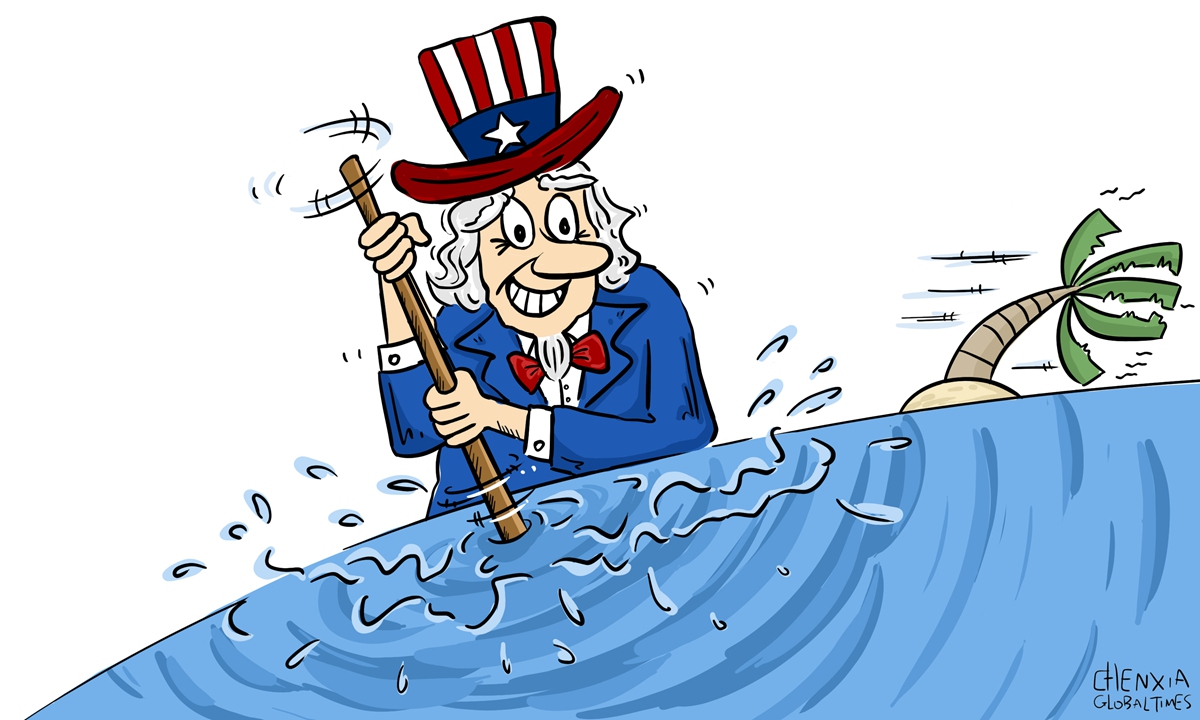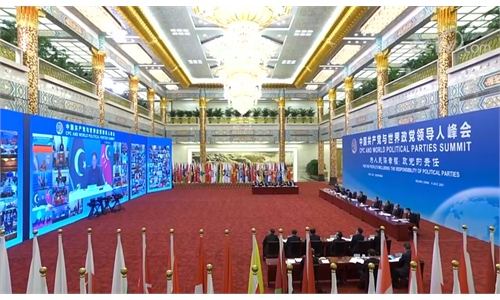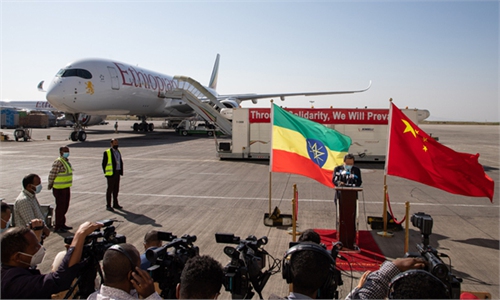
Illustration: Chen Xia/GT
Chinese State Councilor and Foreign Minister Wang Yi called for adhering to multilateralism and jointly safeguarding the maritime order on Tuesday. He made the remarks at the opening ceremony of the symposium on global maritime cooperation and ocean governance 2021 held via video link.What is multilateralism? It is an important principle of international relations, whose core values are inclusiveness, openness, equality and mutual benefit. It is under the framework of multilateralism that has gradually brought the maritime order into being.
The order includes the International Tribunal for the Law of the Sea, the International Seabed Authority, the International Maritime Organization, the Commission on the Limits of the Continental Shelf, and the Intergovernmental Oceanographic Commission.
The multilateral maritime order was established against the backdrop of advancing globalization, especially the vigorous development of marine trade. The United Nations (UN) is at the center. It also involves the UN Convention on the Law of the Sea (UNCLOS), which was adopted in 1982 for crucial guidance. These maritime international laws and institutions provide norms, rules and institutions for countries to settle disputes and formulate maritime policies. Importantly, they supply a framework for global maritime governance.
China is a staunch defender of the multilateral maritime order. The country is not only a signatory to the UNCLOS, but also a party to international conventions such as the Convention on Biological Diversity. In accordance with the principle of multilateralism, China handles disputes and conflicts with neighboring countries in fields such as marine resources exploitation and protection and maritime claims. As a responsible actor, China takes an active part in global maritime governance.
Furthermore, China has also played an active role in providing global maritime public goods. From escorting missions in the Gulf of Aden to the Paris Agreement on dealing with global climate change, China has been advancing maritime affairs within the framework of multilateralism.
However, in addition to "unilateralism," the concept of "mini-multilateralism" is another antonym of multilateralism. The exclusive, targeted and conflicting nature of the so-called mini-multilateralism runs counter to the true spirit of "multilateralism". It is therefore "pseudo-multilateralism." In the maritime field, "mini-multilateralism" has become a tool for some countries to compete for dominance of the sea.
Since the beginning of the 21st century, the global maritime order has gradually shifted from multilateralism established after World War II to "unilateralism" and "mini-multilateralism." In particular, as the strength gap between China and the US has gradually narrowed with the changes of the global geopolitics centered on the Asia-Pacific, the US, which sees the control of the ocean as an important part of the global hegemony, has now adopted the strategy of "unilateralism" and "mini-multilateralism."
In addition to improving its own military strength and increasing forward military deployment to China, the US has gradually roped in its allies and partners to form a "maritime alliance" against China. This took a strong hold in the Obama administration and continues to the present. Japan, the island of Taiwan, the Philippines, Malaysia, Indonesia, India, and even the European Union are all important participants in this agitation.
For example, in the Indo-Pacific region, the US has established a quadrilateral security mechanism, as well as the newly launched AUKUS alliance. The US' intent to build these "small blocs" has long been evident. The aim is to contain China through exclusive institutional arrangements. This is being done to serve its global maritime hegemony and dominant position in the regional order.
The "mini-multilateralism" and "unilateralism" pursued by the US and its allies and partners fail to contribute to regional and global maritime governance. They do not provide guidance for countries to properly address common maritime challenges. This is leading to a tense security situation in the region. There is an important reason why maritime relations between countries have changed from "friendly cooperation, sharing and win-win" to "beggar-thy-neighbor, egoism first."
Openness, inclusiveness and genuine multilateralism are the only solution to global maritime challenges. On the one hand, regional and global maritime threats such as piracy, armed robbery at sea, and plastic waste in the ocean cannot be tackled by any country alone. It is urgent for all countries to discard "egoism" and contribute sufficient political will to address regional and comprehensive maritime challenges. On the other hand, if countries exploit "ocean governance" as a tool to compete for international political power in maritime matters, they will not be able to establish cooperative consensus and mechanisms in response to common challenges and threats.
The maritime order based on zero-sum mentality and the aim of maritime hegemony is against the trend of the times. In the face of the complex and severe maritime challenges in East Asia, China and its neighboring countries should focus on sustainable, peaceful and stable use of oceans. They should adopt the principle of multilateralism in response to maritime challenges in the region. In particular, we should establish an open, inclusive, mutually beneficial and common regional ocean governance mechanism on regional marine environmental and ecological protection, piracy and armed robbery at sea, as well as marine microplastics.
The author is deputy director of Research Centre for Marine Science at National Institute for South China Sea Studies. opinion@globaltimes.com.cn



